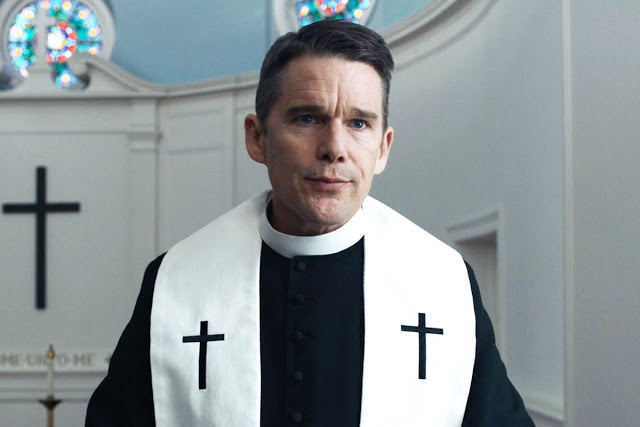Malignant, The Card Counter, and Movies Going All-In

Last Sunday, the critic Walter Chaw tweeted that, because more than 90% of the new movies he watches are “pretty much the same”, he’s more likely to appreciate a film that “just cocks an arm and swings for all it’s worth”. I might quibble with the mathematical accuracy of his first statement, but despite the mixed metaphor, I’m inclined to agree with his second; even when they fail, ambitious movies tend to be more memorable than their cautious counterparts. Chaw presumably had a specific picture in mind, but this past weekend provided multiple titles that refused to play by multiplex rules. One is far better than the other, but both succeed in upending expectations and carving out their own atypical territory.
At the outset—and, in fact, for the majority of its running time—James Wan’s Malignant isn’t especially novel. Despite stemming from a nominally original screenplay by Akela Cooper, it’s another haunted-house chiller that would fit snugly inside the Conjuring cinematic universe that Wan created back in 2013. Its heroine, Madison (Annabelle Wallis, best known to me as Grace on Peaky Blinders), is plagued by visions of a malevolent spirit called Gabriel, one of those shadowy creatures who’s never quite in focus but who looks a bit like the skeleton-masked bank robbers from The Town, only blacker and nastier. In addition to somehow speaking through electronic devices like a demonic Siri, Gabriel seems to be a burgeoning serial killer, and Madison—in an arresting manipulation of the image—periodically finds her mind transported to the sites of his murders, forced to watch his grisly wet work like a helpless, paralyzed bystander. Read More

